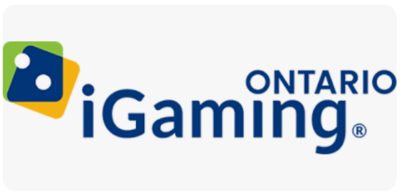September 11th, 2024
BURLINGTON, ON
The rise of online gambling in Ontario over the last two years has been nothing short of remarkable. Since the activity was legalized in April 2022, classic casino games such as blackjack, roulette, online slots, and poker in an online form have taken off. Furthermore, online sports betting has complimented the rise of online casinos nicely with 1 in 5 Ontarians wagering money on sports events. For the most recent Super Bowl in February, 4 of every 10 people betting on sports showed betting interest in the event in Las Vegas, ironically the home of casino action and gambling.
 The most revealing statistic around the Canadian betting interest in the Super Bowl is that 80% of the people wagering on the event did so online. This is indicative of the increased influence of online gambling in Canada and in Ontario in particular, nearly 2 million players held online casino accounts, while just over 1 million were actively participating in sports betting, physically and on online platforms.
The most revealing statistic around the Canadian betting interest in the Super Bowl is that 80% of the people wagering on the event did so online. This is indicative of the increased influence of online gambling in Canada and in Ontario in particular, nearly 2 million players held online casino accounts, while just over 1 million were actively participating in sports betting, physically and on online platforms.
The revenue created by gambling is certainly benefiting Canada’s economy and that of the Ontario province, but with any new phenomenon, especially one that operates in an online space, there comes an increased need to implement tighter security measures to safeguard the identity and personal data of individuals, while also producing fair outcomes on games.
For online casino platforms themselves, it is certainly in their interest to ensure their websites are as secure as possible to maintain their reputation and integrity. With more online casinos and sportsbooks filling the digital space, new operators like the TitanPlay a fully licensed sport betting and online casino brand, need to make sure they do the basics to safeguard their presence in the market.
 Online casino providers are regulated in Ontario by the Alcohol and Gaming Commission of Ontario (AGCO) in conjunction with iGaming Ontario and the two organizations set the standards for online gambling providers to abide by. This of course determines how secure an online gambling platform is to play on. For Ontarians, fully licensed online gambling websites are marked by the logo of iGaming Ontario and means that provider complies fully with the encryption requirements, including up-to-date Secure Socket Layer (SSL) and Transport Layer Security (TLS) protocols.
Online casino providers are regulated in Ontario by the Alcohol and Gaming Commission of Ontario (AGCO) in conjunction with iGaming Ontario and the two organizations set the standards for online gambling providers to abide by. This of course determines how secure an online gambling platform is to play on. For Ontarians, fully licensed online gambling websites are marked by the logo of iGaming Ontario and means that provider complies fully with the encryption requirements, including up-to-date Secure Socket Layer (SSL) and Transport Layer Security (TLS) protocols.
Fair gambling
Gambling online safely is the main concern for any user, but gambling fairly is also paramount to anyone who is investing funds with an online gambling provider. Especially in the online world, a lot of the processes are not tangible, meaning more trust in the providers carrying out transactions correctly or handling data is instilled in these online casinos or sportsbooks.
The same applies for online casino games. Unlike in land-based casinos, the players physically see the dealing of cards or the spin of the roulette wheel and the fall of the pill. For the comfort of players of these online casino games, Random Number Generators (RNGs) algorithms are used to guarantee randomness in card deals, spins, or rolls of die.
Taking control
 Self-exclusion is a key term in gambling. By iGaming Ontario standards, online providers are required to include certain measures to help players control their playing and spending and avoid addiction or financial issues. This could include the option to implement limits on deposits, losses, wagering, and time spent online. Tools to take a self-induced break from gambling are also available to players if they feel the need to take a step back.
Self-exclusion is a key term in gambling. By iGaming Ontario standards, online providers are required to include certain measures to help players control their playing and spending and avoid addiction or financial issues. This could include the option to implement limits on deposits, losses, wagering, and time spent online. Tools to take a self-induced break from gambling are also available to players if they feel the need to take a step back.
Organizations like PlayBreak is a tool that bars players from even accessing casinos, while digital advertising can also be blocked to prevent temptation setting in. And for further support, there are centers in Ontario and helplines related to gambling addiction and safer gambling that provide help and advice to anyone seeking it.















